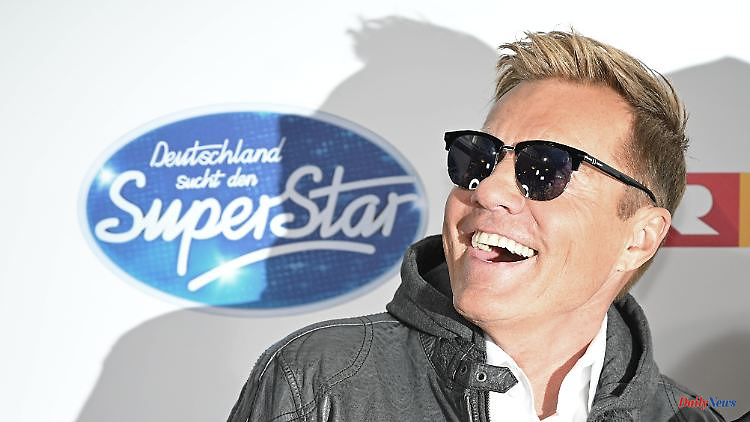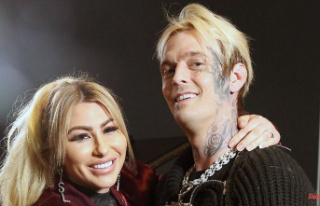Alex, Juliette, Daniel - and of course Dieter. The casting show "Deutschland sucht den Superstar" developed into a street sweeper two decades ago. A lot has happened since then and the show is set to officially end soon. A look back at a phenomenon.
Germany in the early 2000s. The country is governed by Chancellor Gerhard Schröder. But the true ruler of the masses is television. It suddenly turns nobodies into something akin to celebrities, for example the talkative car mechanic Zlatko, who lives in a container in Hürth on the Rhine with "Big Brother". Or it turns - like one evening on a blue flashing stage in Cologne - an Alex from the small town of Sendenhorst into a "superstar".
At the time, millions of Germans sat in front of the television and watched the delicate student in a wine-red waistcoat sing his way to victory in a television show that was completely new. There were 60,000 applicants - Alex was left in the end. We are of course talking about "Germany is looking for the superstar" (DSDS). The casting show from RTL, which stirred up German television at the time. And on which one can now look back with good reason. On November 9, 2002, the first episode was broadcast. So today DSDS is 20 years old.
You have to - also in view of the years that followed - visualize what DSDS was in the beginning. It wasn't the first casting show (there had been "Popstars" before) - but it was probably the show that dared to make the widest appearance. The model was the English format "Pop Idol", which had already achieved incredible ratings. DSDS was a big stage, drama - and juror Dieter Bohlen, who was not exactly known for soft tones. To put it mildly.
"The attempt to make great entertainment, to tell a great story - that was new in Germany. That was different," says Marcus S. Kleiner, Professor of Media Studies at the SRH Berlin University of Applied Sciences. "It brought international flair to the somewhat provincial German television entertainment of the time." A second factor: DSDS sold – at least initially – the classic rags-to-riches claim. One moment as a temporary help in the video store, tomorrow Robbie Williams, that's roughly how it went. Anyone can do it if they have talent and work hard on themselves. That also fitted in very well with the spirit of the times in the so-called noughties.
Germany struggled with high unemployment and argued about the Hartz reforms. Up to 15 million viewers watched the first season in 2002/2003. The jury consisted of Bohlen, record boss Thomas M. Stein, journalist Shona Fraser and moderator Thomas Bug. In the end, Alexander Klaws prevailed, even if, to everyone's shock, he was briefly diagnosed with vocal cord inflammation. The real star, however, was the Bavarian Daniel Küblböck (1985-2018), who could not sing very well, but attracted attention with his idiosyncrasy and quickly gathered a large fan community behind him, who called for him.
Because that was always very important: call, call, call. "It was really impressive. The viewer was not only there to receive - that is, to consume - but also became part of the action," says Katrin Döveling, Professor of Communication Studies and Media Communication in Darmstadt. "He had the feeling that he could have a say in the fate of the candidates. The telephone votes were very central and prominent at the beginning. This mechanism, which "Big Brother" had previously established, contributed greatly to the success." In the years that followed, however, quotas and orientation changed. The assertion crumbled that a new "superstar" was really being chosen.
The soap opera elements of the castings became more explicit. The mostly hapless long-term candidate Menderes Bagci, who repeatedly tried in vain to get started with DSDS, became the mascot for this. In 2016 he converted his acquired - yes, you can call it that - prominence into a victory in the RTL jungle camp. Many other candidates who tried to make up for their lack of talent with overconfidence were less fortunate. Before they disappeared into the abyss of casting television, Bohlen usually threw a hateful saying after them. Something like, "Maybe you can try to use your voice to depilate people's legs." Or: "I ate a schnitzel with cucumber salad earlier. And the cucumber salad was more musical than you."
You need a thick skin to apply. ""DSDS" is just a staged slap on poor souls that only satisfies the lowest instincts," entertainer Stefan Raab judged in 2007 in "Spiegel" about his TV competition. In retrospect, it can be argued whether Bohlen was more of a curse (for the candidates) or a blessing (for DSDS). Professor Kleiner puts it this way: "If you want to make mainstream entertainment, you need controversy." At the same time, Bohlen stood for reach like no other. And range, that was DSDS. However, not only the handling of candidates made for some headlines, the jury composition itself was also an issue from time to time.
At times, the scandal pop bard Michael Wendler sat at the podium, as did the controversial singer Xavier Naidoo. In 2022, RTL finally tried something completely new and replaced the entire jury - including Bohlen, who was replaced by Florian Silbereisen. In the coming season, Bohlen will be there again. It will also be the last season ever. The chapter DSDS, it would be over 20 years after the student from Sendenhorst.












